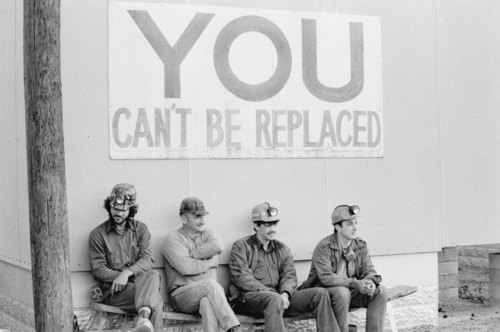Sure, we have phones that are way nicer now, but the Technological Revolution has largely been injurious to anyone in the Labor market, and things are going to get worse, at least in the near and mid term. A free-market society that is highly automated isn’t really very free. Drive for Uber until autonomous cars can take over the wheel, you’re told, or rent a spare room on Airbnb–make space for yourself on the margins through the Sharing Economy. But there’s less to share for most people. From an Economist report:
“Before the horseless carriage, drivers presided over horse-drawn vehicles. When cars became cheap enough, the horses and carriages had to go, which eliminated jobs such as breeding and tending horses and making carriages. But cars raised the productivity of the drivers, for whom the shift in technology was what economists call ‘labour-augmenting.’ They were able to serve more customers, faster and over greater distances. The economic gains from the car were broadly shared by workers, consumers and owners of capital. Yet the economy no longer seems to work that way. The big losers have been workers without highly specialised skills.
The squeeze on workers has come from several directions, as the car industry clearly shows. Its territory is increasingly encroached upon by machines, including computers, which are getting cheaper and more versatile all the time. If cars and lorries do not need drivers, then both personal transport and shipping are likely to become more efficient. Motor vehicles can spend more time in use, with less human error, but there will be no human operator to share in the gains.
At the same time labour markets are hollowing out, polarising into high- and low-skill occupations, with very little employment in the middle. The engineers who design and test new vehicles are benefiting from technological change, but they are highly skilled and it takes remarkably few of them to do the job. At Volvo much of the development work is done virtually, from the design of the cars to the layout of the production line. Other workers, like the large numbers of modestly skilled labourers that might once have worked on the factory floor, are being squeezed out of such work and are now having to compete for low-skill and low-wage jobs.
Labour has been on the losing end of technological change for several decades.”

